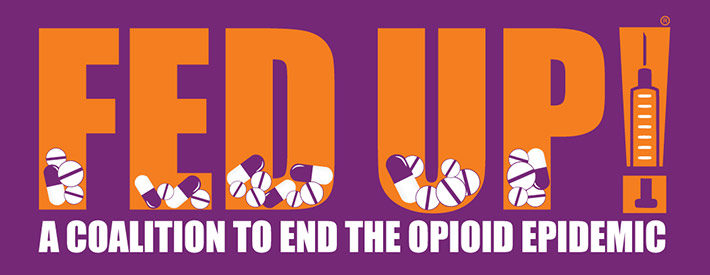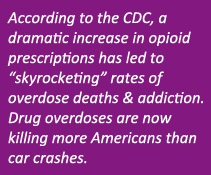-By Daniel Busch, MD, Advocacy Chair, FED UP! Coalition
Addiction Policy Forum (APF) and its Founder, CEO, and President, Jessica Nickel, have become a force within the addiction advocacy movement. Ms. Nickel is widely respected. She is bright, capable, and gets things done. In the past year, she has testified before the President’s Opioid Commission and before important congressional committees and subcommittees.
APF now has chapters in 19 states. Twelve of these have been founded since mid-April, 2018. Many of the chapters are led by excellent people devoted to addiction treatment. APF recently launched its Addiction Resource Center, a user-friendly website to locate local addiction treatment resources,
So what’s the problem?
The problem is the relationship between Ms. Nickel and the pharmaceutical industry.
Alkermes
Ms. Nickel’s work as an industry lobbyist began in 2009. Not long afterward, the drug-maker Alkermes was undergoing a major shift in Vivitrol marketing. When Vivitrol was approved for treatment of opioid use disorder in 2010, it was not well accepted by the medical community. Physicians were largely unwilling to prescribe an expensive new drug without much evidence of efficacy when less expensive alternatives, suboxone and methadone, showed abundant evidence of efficacy.
Stuck with an expensive, unprofitable drug, Alkermes began an unethical campaign of lobbying judges and legislators to use Vivitrol in drug courts and prisons. Unused to dealing with the actual science involved in such medications, judges and legislators were even more vulnerable than physicians to the specious arguments that formed the basis of the Alkermes campaign. Dr. Adriane Fugh-Berman of Georgetown has said, “Alkermes has taken unethical drug promotion to new depths by enlisting judges, law enforcement personnel, and legislators to favor Vivitrol over proven treatments….Alkermes’ actions undermine public health.” In Nov., 2017, Sen. Kamala Harris launched an investigation into Alkermes’ lobbying and marketing practices.
It was into this world that Jessica Nickel stepped when she began her work as a lobbyist for Alkermes in 2013 or 2014. In 2015, while working as an Alkermes lobbyist, Ms. Nickel founded Addiction Policy Forum. The sole sponsor of APF was Alkermes. Richard Pops, the Chairman and CEO of Alkermes, sits on the Board of APF. While running APF, Ms. Nickel continued as a paid lobbyist for Alkermes into 2017. It is impossible to escape the conclusion that Alkermes decided to sponsor APF as a means of increasing its ties with the addiction advocacy community.
The Alkermes’ Vivitrol campaign has been so successful that many of those in the addiction advocacy community regard Alkermes as a friend. At this time, Alkermes not only sponsors APF; it also funds other well-known addiction advocacy groups.
The PhRMA – APF Partnership
The US Pharmaceutical industry is a lobbying behemoth. 2017 lobbying expenses by pharma were $280 million, 50% more than the next largest lobbying industry. In the 2016 election year, 96 of the 100 senators received contributions from the pharmaceutical industry.
38 of the largest US pharmaceutical companies, including not only Alkermes but also opioid manufacturers Purdue Pharma, Johnson & Johnson, and Teva, contribute money to their lobbying organization. “Pharmaceutical Researchers and Manufacturers of America” – PhRMA for short.
While the relationship with Alkermes was essential to the development of APF, its real success began last year, when PhRMA began to provide it with major financial support. In 2017, the annual operating budget for APF increased eight-fold from $573,000 to $4.7 million.
Ms. Nickel has attempted to obfuscate the role of PhRMA in funding APF by stating that APF is supported by “diverse set of foundations, federal grants, corporate sponsors and individual donors.” She has refused to discuss the percentage of the APF budget that comes from PhRMA.
PhRMA has not been so bashful. On December 16, 2017, Purdue Pharma tweeted the big PhRMA announcement of the day, that PhRMA “announced a new multi-year, multimillion dollar initiative to address the opioid crisis, which will include a partnership with the Addiction Policy Forum to fund state and local programs….”
In interviews with news outlet STAT News, “Ms. Nickel brushed off concerns about her work with Alkermes and her group’s multimillion-dollar partnership with PhRMA, the drug industry lobbying group, calling those reservations ‘an old way of thinking.’”
Old way of thinking? There’s nothing old-fashioned about fear of pharmaceutical industry influence. We only recently saw the impact of that influence on the FDA with disastrous results. How many of the 350,000 opioid deaths are a consequence of the power of industry to influence FDA decision-making?
And can the relationship between the lobbying arm of the pharmaceutical industry and a major addiction advocacy organization really be benign?
Just one question should answer that. Why is PhRMA funding state and local programs through Addiction Policy Forum rather than through the states, counties and municipalities themselves? The answer is that pharmaceutical industry support for APF is dirt cheap compared to the money the pharmaceutical industry should be paying to fund state, county, and municipal programs.
Right now two issues besides federal legislation need our strong advocacy: opioid stewardship fees and the more than 600 lawsuits against pharmaceutical industry opioid manufacturers that are going forward in Cleveland.
Legislation has been proposed in numerous states to charge pharmaceutical manufacturers an “opioid stewardship fee” based on opioid sales. The opioid stewardship fee is designed to offset some of the expenses the states will inevitably incur in dealing with expectable problems resulting from opioid prescribing, e.g., overdose and addiction treatment.
Expectably, PhRMA is lobbying strongly against opioid stewardship fees. In Nov., 2017, five pharmaceutical industry lobbyists came with Ms. Nickel to a Minnesota meeting in which the lobbyists let legislators proposing the fee know that the pharmaceutical industry was opposed. Ms. Nickel said and says she is neutral about the opioid stewardship fee. She shouldn’t be. She should be speaking out strongly in favor of it. The states are desperate for the funds.
Industry is currently facing more than 600 lawsuits from states, counties and cities for contributing to the opioid epidemic through deceptive marketing practices and negligent distribution. These cases have been combined and are being decided in federal court in Cleveland. The pharmaceutical industry is fighting these lawsuits and will do its best to make sure that the fewest dollars possible leave the pharmaceutical industry to go into addiction treatment. The advocacy community needs to be supporting the efforts of the states and municipalities as FED UP! and Facing Addiction are doing. Where is APF on this issue? Again silent.
The price of becoming a PhRMA partner is keeping silent on issues that need strong advocacy from the addiction advocacy community but impact the bottom line of the pharmaceutical industry.
If that’s not the case, let’s hear Ms. Nickel speak out on these issues instead of telling us that we need to be “collaborating with industry.”
Until then, the partnership between Jessica Nickel and the pharmaceutical industry is a bad deal for all except Ms. Nickel and the relatively small number of patients and families who will benefit from the money that the pharmaceutical lobby will willingly spend on them.







